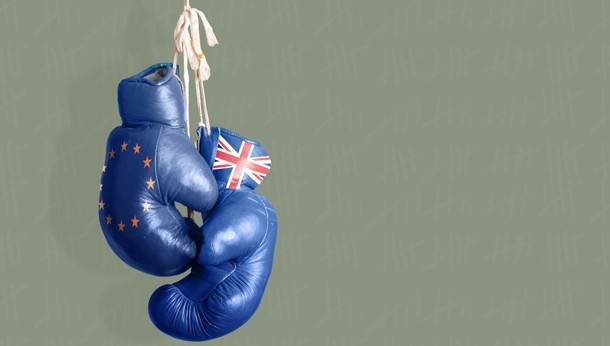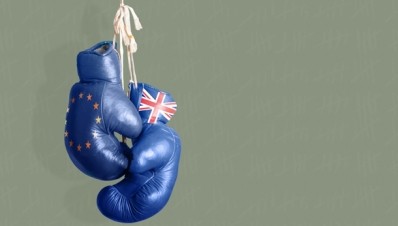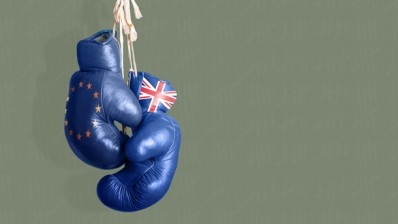EU referendum
Heading for the Brexit: How leaving the EU will impact pubs

To leave or not to leave, that was the question being asked in bars across the UK. But now Britain’s exit (‘Brexit’) from the European Union has happened, what will it mean for the UK pub sector?
It is not simply a case of walking away from Europe, instead a lengthy and complex process of negotiation will begin, and the UK may have to retain elements of EU legislation regardless, if it is to thrive on the international markets.
So how will an exit affect the sector?
Employment
Lee Ashwood, an employment law solicitor at law company Eversheds, says that European law has had quite an impact on employers in terms of paid holidays, emergency time off, hours worked and discrimination.
He says: “Whether those restrictions on employers will disappear in the event of a Brexit will depend on the UK’s ongoing relationship with the EU and the political will of the UK government at the time.”
It is impossible to predict the immediate changes if the UK were able to free itself of EU influence on its employment laws. Ashwood points out that, for example, it would require a very brave government to remove the right to paid holiday or make it lawful to discriminate.
But we could see changes where there is conflict. Here Ashwood looks to the confusion over how to calculate holiday pay when someone earns commission or works overtime — “these issues could be eradicated by the UK deciding the answer”.
Terms
And, of course, there is also the issue of whether or not the UK would have to agree to continue to provide the unconditional right to work in the UK that Europeans have at the moment but, again, this would be subject to the terms of the exit agreement. But it’s a serious concern, and one that’s been around for some time.
As far back as June 2008, a paper for the Migration Advisory Committee* estimated that 18% of hospitality workers came from abroad. By September 2013, the British Hospitality Association (BHA)** reckoned that 22% of the sector’s workers were from overseas.
Ashwood sees the danger: “Should the terms of Brexit prevent free movement of people, then trying to overcome immigration restrictions could cause recruitment difficulty for publicans who have previously looked to the wider EU to fill skills gaps in the UK.”
Tim Martin
Tim Martin, chairman of JD Wetherspoon, is hopeful because he thinks that no one who is here legally will be required to leave the UK. In addition, he says: “It is likely that parliament, after leaving the EU, will allow current EU residents to continue to travel to the UK to work here without onerous restriction.”
Going forward though, Martin sees the main benefit of Brexit as “employment laws being more predictable, since they will be de-cided as an act of parliament, which will prompt a debate within Britain, giving more control to the public and MPs”.
Martin makes the point that Wetherspoon’s “can cope better with complex legislation, but many individual licensees have terrible problems dealing with this area of the law as it is”. He is unequivocal when he says “the UK should leave the European Union, in order to be able to frame its own laws”.
Regulation of the trade
David Roberts, head of licensing at Eversheds, says that licensing regimes in the UK are not derived from the EU and are unlikely to require any reform.
“In the short term, there are also unlikely to be any discernible changes to many of the areas of corporate regulation that have originated from Europe. Many EU directives will have already been implemented into domestic legislation such as those setting out requirements in respect of health and safety, for example.”
But he adds that the legislation will not automatically fall away on Brexit, and it is questionable whether there is likely to be any appetite to repeal such law that set out high standards of practice.
“Even where EU legislation has direct effect (such as EC178/2002 setting down the principles of food safety) there is domestic legislation that creates a domestic enforcement framework,” he adds.
But, of course, people may see the matter differently. Take the EU Food Information to Consumers Regulation, which took effect in December 2014. It requires food-serving businesses to provide information about 14 common allergens that may be in their food. Consumers may see it as common sense but pubs see it as law and red tape that comes from Europe.
Rightly or wrongly, pubs are having to comply with European legislation, another reason why Martin wants the UK out of Europe: “Legislation that might emerge from Europe in the future is unpredictable and pub companies and licensees will have little influence over it.It is possible to contact MPs and the Government [in the UK], which is far more difficult with the distant and unelected Brussels bureaucracy.”
Taxation and accounting
But what of tax? Paul Gilleran, a tax accountant at Roslyns, sees Brexit as possibly changing the way UK tax is administered. Take VAT for example, it’s an EU tax and a significant part of treasury annual tax income. Gilleran says there are specific conditions on the rates that a member state must charge under EU law.
But for Gilleran, Brexit could help sales: “If the UK leaves the EU, the Government could decide to abolish VAT. However, given the large revenue generated it would be replaced with a similar tax on the sale of goods and services. Taking the EU out of the equation may give the opportunity to have lower sales tax rates that, for publicans, would be positive because they could pass on savings, which may generate increased revenue.”
Interestingly, a December 2014 paper*** for the Institute of Economic Affairs titled Who’s killing the British pub? claimed that while the duty escalator was finally abandoned in 2014, high taxes remain (in the form of VAT at 20%) and so British drinkers now pay 40% of the EU’s entire alcohol duty bill.
The fact that tax is complex is a given. Even so, Martin considers European rules and regulations in relation to VAT and how they impact on UK law as incredibly complex and few understand where British law ends and European law begins.
Opening up
Indeed, he suggests the tax debate needs opening up: “The VAT issue is vital for pubs, but it’s uncertain as to whether leaving the EU would create momentum for tax equality with supermarkets. It will help if the trade can concentrate its argument on dealing with UK politicians to obtain tax equality, rather than spending time with complex employment and other regulations, often emanating from Europe.”
Martin does think that Brexit would reduce costs for licensees: “The UK sent £17.5bn to the EU. Ceasing these payments will reduce the need for the Government to levy taxes on pubs and other businesses to the same extent.”
In other areas, Gilleran sees little change to corporation tax and income tax because they are not controlled by the EU. However, because the UK has many overseas investors, it would need to remain competitive with the rate of cor-poration tax charged.
Trade
When it comes to trade with Europe, a break would result in significant changes, and these changes could see licensed operators paying more for stock such as imported beers, wines and spirits and foods.
That said, Martin reckons that “Britain will be able to negotiate an excellent free trade deal with EU countries, since it is in the interests of both parties to achieve this”. But he does think that if tariffs are introduced, products from the rest of the world could well rise in popularity.
But while trade agreements are one part of the trade story, so the effect of Brexit on currency is another. David Johnson, director of Halo Financial says: “no country has ever left the EU, let alone the second largest member, so the stages of exit and the depth and breadth of the negotiations to allow it are all uncertain”.
However, Johnson says there is a real risk to currency. “Further uncertainty and sterling may well slip to the bottom of its long-term range against the euro,” he says. “That would take the pound to somewhere between €1.15 and €1.20. Against the US dollar, sterling is caught in a range between $1.40 and $1.45.”
Exports
Britain exports less to Europe than it imports. “On average,” says Johnson, “the balance of trade gain that Europe makes from its business with the UK is roughly £8bn to £9bn per month. That trade and contribution advantage of £105bn a year is far too lucrative for the EU to want to lock Britain out of the club, even if the UK votes to leave the EU.”
Ultimately, the sterling-euro rate isn’t a one-way bet even if the polls move towards Brexit and there follow volatile trading conditions in the pre and post-referendum periods. For the trade, the cost of imported products could change wildly making razor-thin margins more problematic.
Of course, a falling currency will mean that overseas visitors spending in pubs will find that their money goes further.
And on tourism, Martin thinks that our European neighbours will want tourism to run unabated: “All countries have a mutual interest in encouraging tourism and it is certain that the two-way flow of tourists will continue.”
Could the trade see the trouble that Russia has seen as its currency has fallen following recession, the falling oil price and trade embargos? Certainly Carlsberg and Diageo aren’t happy at present because Russians are drinking less. A falling pound, a possible interruption to the UK recovery could take cash out of drinkers pockets.
In summary
It is not possible to predict the true impact for pubs of the UK leaving the European Union.
But one thing is clear — a separation will not be an easy process of negotiation and will take time. And if the UK were to enter into agreement with the EU, based on the model adopted by Norway, the UK may actually find itself having to agree to continue with a number of the EU’s existing regulatory requirements.
Sources:
https://www.researchonline.org.uk/sds/search/download.do?ref=B13274
http://www.bha.org.uk/bha_members_news/employing-foreign-workers-look-out-pitfalls-ahead/






